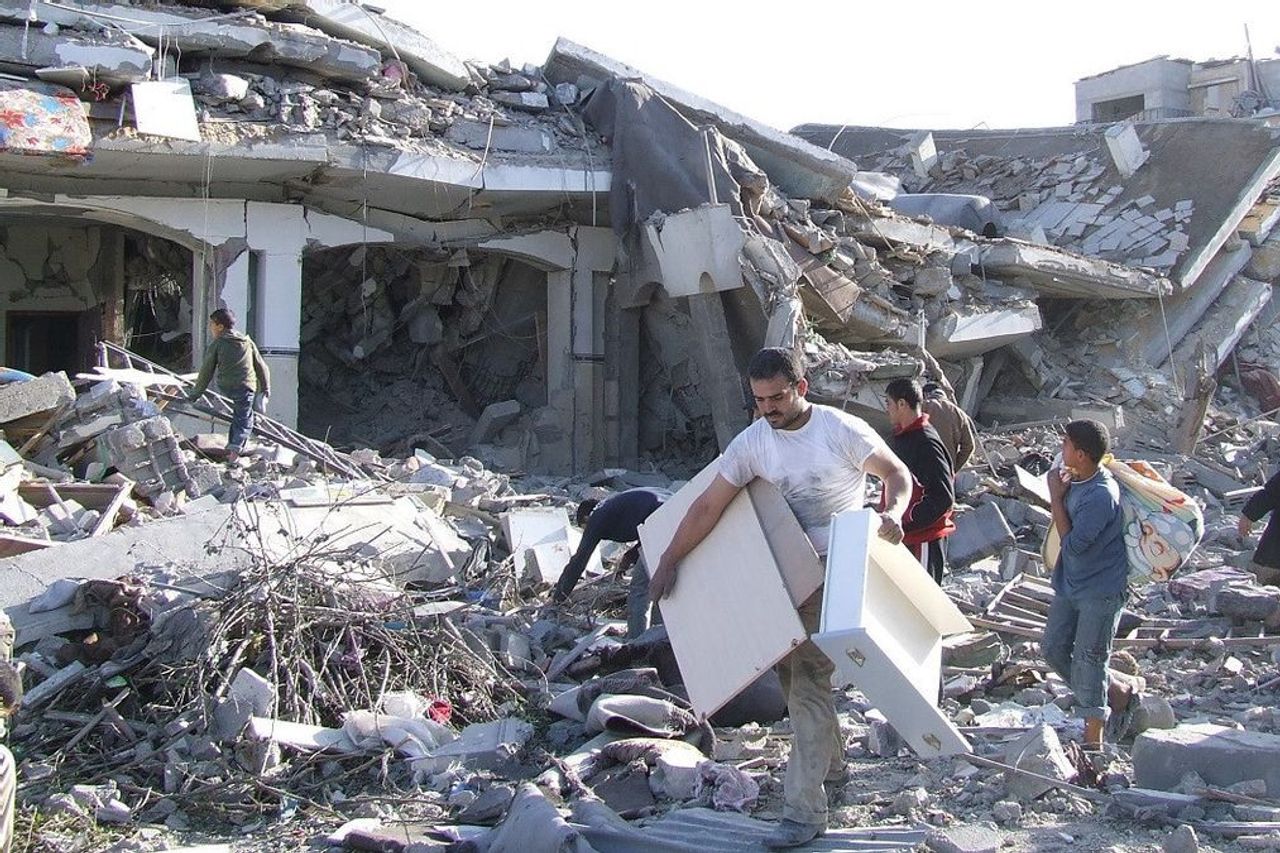Israel-Hamas War Casualties: 35 Palestinians Killed In Gaza

JAKARTA - Hostilities between Israel and Hamas escalated overnight, with 35 Palestinians killed in Gaza and three in Israel in the most intensive airstrikes in years.
Israel carried out hundreds of airstrikes in Gaza into the early hours of Wednesday, May 12, when Islamist groups and other Palestinian militant groups fired several rocket attacks on Tel Aviv and Syria.
One building in Gaza collapsed and another was heavily damaged after being repeatedly hit by Israeli airstrikes.
Israel says it is attacking Hamas targets, including intelligence centers and rocket launch sites.
It was the largest attack between Israel and Hamas since the 2014 war in Gaza and sparked international concerns that the situation could get out of control.
UN Middle East peace envoy, Tor Wennesland, quoted by Reuters via Antara said on Twitter, "Stop the gunfire immediately. This could escalate to full-scale war. Leaders on all sides must take responsibility for de-escalating.
"The cost of the war in Gaza is devastating and paid for by ordinary people. The UN is working with all parties to restore calm. Stop the violence now", he wrote.
As of Wednesday morning, Gazans reported their homes were shaking and the sky was illuminated with Israeli strikes, rockets coming out, and Israeli air defense missiles intercepting them.
Israelis fled to shelters or onto sidewalks on the coast and to southern Israel amid the sound of explosions as interceptor missiles streaked into the sky.
Hamas' armed wing said it fired 210 rockets toward Beersheba and Tel Aviv in response to the bombing of a tower building in Gaza City.
In Tel Aviv, airstrike sirens were heard around the city. For Israel, militant targets in Tel Aviv, its commercial capital, pose a new challenge in the confrontation with the Islamist group Hamas, which is considered a terrorist organization by Israel and the United States.
The airstrikes followed weeks of tensions in Jerusalem during the fasting month of Ramadan, with clashes between Israeli police and Palestinian protesters in and around the Al-Aqsa Mosque, at a compound revered by Jews as the "Temple Mount" and by Muslims as a Noble Holy Site.
Very expensive price
It seems that the violence will not end soon. Israeli Prime Minister Benjamin Netanyahu warned that militants would pay very handsomely for a rocket that reached the outskirts of Jerusalem on Monday during a holiday in Israel to commemorate its capture of East Jerusalem in the 1967 war.
The outbreak of hostilities prompted Netanyahu's political opponents to suspend negotiations on forming a coalition of right-wing, left, and center-left parties to oust him after the inconclusive March 23 election.
Opposition Leader Yair Lapid has three weeks left to form a government, with new elections - and another chance for Netanyahu to retain power - likely if he fails.
The Arab League, some of its members accuse Israel of carrying out "indiscriminate and irresponsible" attacks in Gaza and says it is responsible for a "dangerous escalation" in Jerusalem.
Hamas has called its rocket attack the "Sword of Jerusalem," seeking to marginalize Palestinian President Mahmoud Abbas and present itself as the guardian of the Palestinian people in Jerusalem.
The leader of the militant group, Ismail Haniyeh, said Israel had fired fires in Jerusalem and Al-Aqsa and the fire spreading to Gaza, therefore, was responsible for the consequences. "
Haniyeh said that Qatar, Egypt, and the United Nations had made contact to ask for calm but Hamas's message to Israel was: "If they want to increase the attack, the resistance is ready, if they want to stop, the resistance is ready".
The White House said on Tuesday that Israel has a legitimate right to defend itself from rocket attacks but put pressure on Israel over its treatment of Palestinians, saying Jerusalem should be a place to coexist.
The United States is delaying UN Security Council efforts to issue a public statement on rising tensions because it could be dangerous for behind-the-scenes efforts to end the violence, according to diplomats and sources familiar with the US strategy.
State Department spokesman Ned Price urged calm and "restraint on both sides" by saying: "The loss of Israeli lives, the loss of lives of Palestinians, it is something we deeply regret".
He added: "We urge this de-escalating message that this loss of life will end soon.
